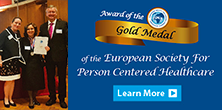How Music Can Heal ~ by Talia Wooldridge with assistance from Michael Moon
This is a guest post from Talia Wooldridge, of “Music can Heal”, whom I met at the Music to Care Conference in November at the University of Toronto. Talia will be coming to the Mosaic Community Resource Centre with some of her colleagues for a musical “healing session” in the Spring:
If you go to their website you will find that you become entranced and thoroughly relaxed listening to the music…..!
And now to the post:
—-
From ancient Egyptian, Greek and Vedic texts to shamanic tribes to modern neuroscience journals and music therapist’s patient files, the power of music – essentially organized sound and its vibration – has been shown to positively affect recovery, help heal, and ease transition for those suffering from illness.
As Daniel Levitin points out, music stimulates more parts of the brain at once than any one other activity. Music also stimulates our limbic system, which has been shown to support memory, reduce agitated and aggressive behaviours in dementia patients (when the music is personalized), restructure identity and express when words cannot. It has also been shown to speed up cellular healing, ease anxiety before surgical and medical procedures, and new research is demonstrating how low frequency sounds (40 hertz) can reduce pain and symptoms associated with depression, anxiety, Parkinson’s Disease and Chronic Fatigue Syndrome. The results are, not surprisingly, confirming what we already dismiss as common sense: Music can heal.
How?
Sound is vibration. And human bodies naturally resonate with vibration because they (we) are made of vibrating atoms, most of which are in water, that are particularly sensitive to sound vibration. So when you put music or sound (that we can not always hear but can still feel!) near the human body with the right hertz and intention to affect a change, change can, and often will, occur.
Recent tests in the US palliative care homes have demonstrated that even a simple awareness of a patient’s musical likes and dislikes can reduce hostile behaviour in more violent dementia wards. Often over-worked and stressed care giver’s will turn on a radio station while cleaning or attending to a room with a patient in it. If their taste in music negatively affects the patient, increased aggressive behavior ensues.
Music can also spark a memory and bring back a flood of associations. Oliver Sacks and Dan Cohen’s video visibly illustrates the power of music when an unresponsive Alzheimer’s patient comes to life after years of silence when he hears familiar jazz music from on an iPod. But is recorded music enough? No. All researchers and practitioners agree that live music is best for the added vibratory qualities.
For these reasons, Music Can Heal, a registered non-profit organization, places musicians and sound practitioners into care facilities and private homes for soothing and uplifting bedside and atrium concerts. Hearing live music, either by a musician playing bedside or walking the halls of a stressful hospital wing, can soothe, comfort, uplift and distract from pain. It also provides relief for those working in these demanding environments. The sounds in a hospital can be over-stimulating and has successfully been countered with music, iPods and headphones where possible. Or, at the very least, some earplugs to soften the noise pollution that is disruptive to rest, healing and recovery.
Music Can Heal features musicians who play different musical styles and instruments from around the globe. Some researchers have found that patients hearing music from their culture or ancestry, especially if they have been displaced from their homeland, can actually assist in quicker recovery times.
The power of music to uplift one’s spirits is not hard science. Nor is it new. Many would argue that western science is finally catching up to what the ancient cultures and our common sense already is aware of: music can heal.
For more information, to book a musician or to learn about new science in sound and healing, please visit: www.musiccanheal.org.
EMBEDDED LINKS:
video:http://www.youtube.com/watch?v=5FWn4JB2YLU&feature=c4-overview&list=UUWSW0VyPUvG8dfJc9VtFQRg
Additional resources: http://www.musiccanheal.org/#!resources-and-links/c1x3c
